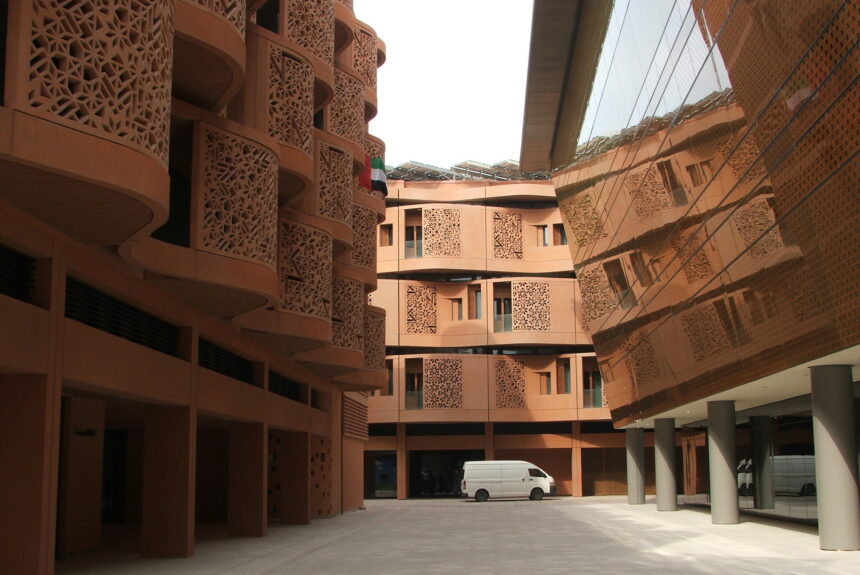Laura Millan of Bloomberg reports on a Middle Eastern city that is adapting to heat.

- Masdar City, which is located outside of Abu Dhabi, was constructed to be the world’s first zero-emissions, zero-waste city, a goal that it has failed to meet.
- Despite this failure, the city’s architecture and infrastructure could provide a blueprint for confronting extreme heat in the future.
- The city’s buildings are built to shade pedestrian walkways and green space is abundant which cools the shaded areas by as much as 50° F (versus sunny areas).
- As more people move to cities globally, urban planning and architecture like Masdar’s could be key to reducing heat-caused fatalities.
“‘Masdar City is dismissed because the tech side didn’t work. It’s seen as an eccentric experiment of an oil-rich state,’ says Sarah Moser, an assistant professor at McGill University in Canada who studies new cities. ‘But what’s simple and radical about it is that there’s almost no direct sunlight that reaches the pedestrian level.'”
Read the full article here.
The views and opinions expressed are those of the author’s and do not necessarily reflect the official policy or position of C3.
